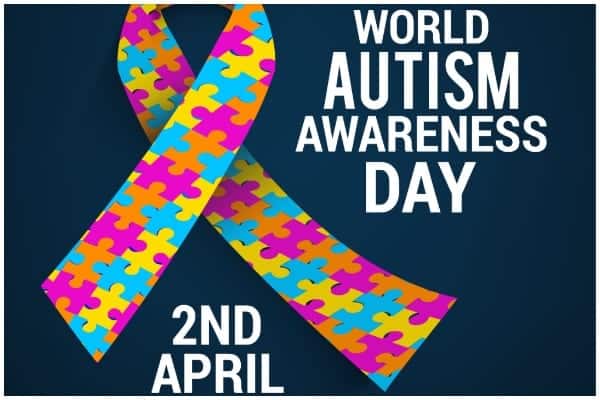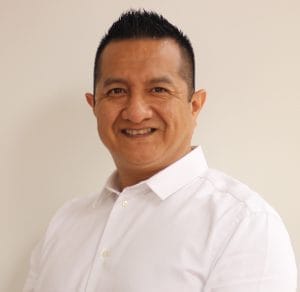Education in diversity – Atlantic International University
August 25, 2022 2023-09-18 21:20Education in diversity – Atlantic International University
On the occasion of the celebration of World Autism Awareness Day, we want to celebrate the work of Dr. Jacqueline Cox Taylor, an expert Australian consultant in Special Education, who has dedicated her life to working with neurodiverse children.
Jacqueline graduated from Atlantic International University in 2020, where she earned her Doctorate in Special Education, reaching a significant milestone that calls for her life’s work.
According to Dr. Cox Taylor, her research shows that education is an individual process and that only children decide what they want to learn. These conclusions reveal the need to reassess how we impart knowledge to all people, neuroatypical or not.
Currently, it is estimated that, worldwide, one in 160 children has an ASD. This estimate represents an average figure since the observed prevalence varies considerably between the different studies.
On World Autism Awareness Day, celebrated every year on April 2, the aim is to make these neurological conditions a little more known and empathize with those who present them. And, of course, showing that it does not have to be limiting, but on the contrary, it can be an excellent driver for success. The main reason is that those who suffer from them, although they do not usually show interest in many subjects, are able to focus on those that do attract them. This means that they often even become some of the greatest exponents of these areas.
Education in diversity
Dr. Jacqueline believes that quality education requires a therapeutic vision. In her experience working with children with special needs, she concludes that a nonjudgmental attitude toward what the educator observes is a big part of the process.
In her book Seeing What It Is, she discusses how the education system impacts children with special needs. She concludes that, especially for neuroatypical children, it is necessary to try and look at each child for “exactly what he is”. This means looking at children for what they do, how they do it, where they come from, what their experiences have been, etc.
One of her conclusions is particularly novel in terms of education, and especially education for neurodiverse children. She expresses that, being an individual experience, we cannot judge the learning process by the existence or absence of the common responses that we expect from a child. The fact that the child does not respond as we expect (verbally and nonverbally) does not mean that he does not relate to the knowledge provided.
Dr. Cox Taylor’s work directly supports at least two of the Sustainable Development Goals. By providing a Quality Education and approaching each student with a therapeutic look, we can also aspire to achieve the Reduction of Inequalities. We tend to relate inequality as a socioeconomic index and, although it is true for many cases, Cox Taylor’s testimony sheds light on other situations in which inequality is evident, but often ignored.
By understanding special children, Dr. Cox Taylor is driving this significant change in the way we approach education.
Nothing is impossible for those who decide to fight for their dreams.
We leave you a list of 5 people with great achievements in the world in different areas within the autistic spectrum.
1.Anthony Hopkins
Oscar winner and considered one of the best actors on the movie scene.
He was diagnosed with Asperger syndrome late, which made him understand why he was a loner who never fit in anywhere. He used to get into trouble and cause it to others, especially in childhood. He had to deal with anger and a clear difficulty connecting with others.
However, the actor himself has assured that having this neurological alteration has been partly an advantage. He has given her a prodigious memory and, furthermore, she loves to unravel the characters that he plays.
2. Vernon L. Smith
He was awarded the 2002 Nobel Memorial Prize in Economics. The reason, having carried out laboratory experiments as a tool in empirical economic analysis. He specifically focused on the study of alternative market mechanisms. He is Doctor Honoris Causa for his contribution to the economy. A brilliant mind that also has this disorder.
Vernon Smith has openly acknowledged that Asperger’s has helped him in his work. “I think there are different kinds of minds and that certain mental deficiencies may actually represent selective advantages. We have left behind many barriers that have to do with skin color and other characteristics, but there is still not enough recognition of mental diversity. We don’t all have to think alike to live together in a productive and fulfilling world.”
3. Satoshi Tajiri
This Japanese video game designer is the creator of the Pocket Monsters series, known in the West as Pokémon. Although he is very private and has never spoken publicly about it, he was diagnosed with Asperger’s syndrome. Despite the difficulties in relating to others that he supposes, he has become an expert in his career as a video game designer.
One of the characteristics of this neurological picture is that people cannot imagine, but rather build new perfectly structured realities. This is what happens in the Pokémon universe. A completely structured world, with its rules and regulations, in which each character is perfectly identified and that is transformed with a logic.
4. Stanley Kubrick
He has worked as a screenwriter, photographer, and producer, but Stanley Kubrick is famous for directing such well-known films as A Clockwork Orange and 2001: A Space Odyssey. Although there is no record of an official diagnosis of an ASD, everything indicates that his problems relating to other people, his introversion, and his predilection for the company of animals had to do with an alteration of this nature.
5. Wolfgang Amadeus Mozart
During his early childhood in his native Salzburg, Wolfgang Amadeus Mozart showed unusual ability playing keyboard instruments and the violin. At the age of 5, he was already composing musical works and began to reap his first successes. The rest of the story, we all know it. Not surprisingly, he is considered the greatest exponent of modern Western music, as well as one of the most outstanding pianists and composers in all of history.
However, he always found it difficult to communicate with others, an aspect that psychiatrist Michael Fitzgerald, from Trinity College Dublin, interprets as some kind of mild Autism Spectrum Disorder. Interestingly, the works of this famous character tend to enjoy high acceptance among children who suffer from different ASDs.
What do you think?
People like Dr. Cox found a way to make a difference in the world and make it a better place. And you, are you ready to leave an unrepeatable mark on society?
























